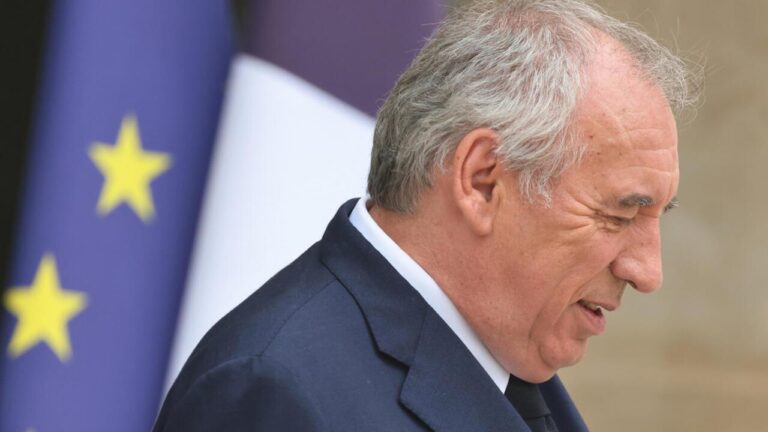In a developing political saga, French Prime Minister François Bayrou faces a looming confidence vote that could determine his future in office. As tensions rise within the French government and public sentiment fluctuates, lawmakers are preparing to address the critical question of Bayrou’s leadership. The anticipated vote comes amid growing criticism of the Prime Minister’s handling of key issues, including economic reforms and domestic policies. With the backing of President Emmanuel Macron in question and party divisions deepening, the outcome of this confidence vote could signal a pivotal moment for France’s governing administration and its strategic direction moving forward. This article explores the backdrop of the vote, the key players involved, and what this potential shift means for the future of French politics.
French PM François Bayrou Faces Confidence Vote Amid Political Turmoil
As political tensions rise in France, François Bayrou, the Prime Minister, finds himself at the center of a brewing storm, facing a crucial confidence vote that could determine the fate of his administration. Party insiders speculate that dissent within the ranks of his coalition is growing, fueled by a variety of contentious issues, including economic reforms and labor laws. In recent weeks, Bayrou’s handling of the nation’s stagnant economy has drawn sharp criticism, with opponents accusing him of failing to address dire unemployment rates and rising public discontent.
Key factors contributing to the current political turmoil include:
- Economic Policy Challenges: Critics argue that proposed reforms lack effectiveness and clarity.
- Public Protests: Ongoing civil unrest has cast a shadow over Bayrou’s leadership.
- Internal Party Discontent: Several party members have publicly voiced their dissatisfaction, raising questions about Bayrou’s ability to unite the coalition.
| Key Issues | Impact |
|---|---|
| Labor Reforms | Potential strike actions and public backlash |
| Unemployment Rate | Increased criticism from opposition |
| Public Trust | Declining approval ratings for the government |
Analysis of the Implications for French Governance and Policy Direction
The anticipated ouster of French PM François Bayrou during the upcoming confidence vote signals a period of uncertainty for French governance. Analysts suggest that Bayrou’s potential removal could lead to a major shift in policy direction, risking paralysis within government initiatives aimed at economic reform and social stability. Members of Parliament are reportedly divided, with potential repercussions for crucial legislative agendas that address:
- Economic Recovery: Focused on reviving post-pandemic growth.
- Social Programs: Initiatives designed to tackle employment and poverty.
- Climate Policy: Commitments to environmental sustainability and green technologies.
Should Bayrou be ousted, the ruling coalition may face challenges in rallying support for its flagship policies. The potential rise of a new leadership team might bring fresh perspectives but could also result in a more fragmented political landscape. The French populace remains watchful, as the outcome of the confidence vote may redefine the government’s approach to pressing issues like:
| Issue | Potential Impact |
|---|---|
| Economic Strategy | Shifts in investment priorities |
| Healthcare | Possible cuts to social programs |
| Foreign Relations | Changes in EU collaboration |
The stakes are high, with implications reaching beyond domestic governance to influence France’s standing within the European Union and its ability to respond to global challenges. Remaining vigilant to developments will be crucial as stakeholders on all sides assess the unfolding narrative and its broader significance for the future of French policy.
Key Stakeholders Weigh In on Potential Successors and Political Landscape
As speculation mounts over the impending confidence vote against Prime Minister François Bayrou, key political figures and analysts have begun to express their opinions on the potential successors and the shifting landscape. Prominent members from both sides of the aisle are contemplating who could take the reins should Bayrou be ousted. The stakes are high, with many predicting a tumultuous reshuffle that could redefine party alliances and influence upcoming legislative agendas. Influential voices have suggested several candidates who might emerge as frontrunners:
- Élisabeth Borne: A minister known for her decisive approach to climate policy.
- Jean Castex: Former Prime Minister, bringing experience and a track record of stability.
- Laurent Wauquiez: A right-wing figure who could shift the government’s focus in a new direction.
- Marine Le Pen: Poised to capitalize on any vacuums, her presence looms large.
The potential succession is not only influenced by personal ambitions but also by strategic calculations of the broader political climate. Given the historical context and current voter sentiments, stakeholders are gauging the impact on their constituencies, as trust in leadership fluctuates. The dynamics at play could lead to an unprecedented reform or a backlash that solidifies existing divides. Here’s a brief overview of the potential implications for the political landscape:
| Implication | Details |
|---|---|
| Policy Overhaul | A shift in leadership could lead to significant policy changes, particularly in economic and social domains. |
| Electoral Strategies | Parties may reassess their campaign strategies ahead of upcoming elections, adjusting messaging to appeal to discontented voters. |
| Coalition Building | New alliances may form, reshaping the landscape of political support and legislative power. |
Recommendations for the Government to Navigate Post-Vote Challenges
In the wake of the anticipated confidence vote, it is crucial for the government to adopt a multifaceted approach to tackle the ensuing challenges. Engagement with all stakeholders is essential to foster trust and transparency. This can include:
- Open dialogues with opposition parties to ensure their concerns are heard and addressed.
- Public forums to involve citizens in discussions, fostering a sense of participation and ownership.
- Community outreach programs to gather grassroots-level insights and promote accountability.
Moreover, it is imperative to implement a strategic communication plan that outlines clear messaging regarding government actions and its vision for the future. This plan should encompass:
- Regular updates to the public via press releases and social media to provide context on policy decisions.
- Collaboration with media outlets to ensure accurate reporting and reduce misinformation.
- Crisis management strategies that prioritize rapid responses to emerging issues.
To Wrap It Up
In summary, the anticipated confidence vote regarding French Prime Minister François Bayrou underscores the brewing tensions within the country’s political landscape. As opposition parties rally support and public sentiment grows increasingly critical, the outcome of this pivotal vote could reshape the future of Bayrou’s administration and the broader government dynamics. With the political stakes higher than ever, all eyes will be on the National Assembly as lawmakers prepare to make a significant decision that will reverberate across France. The coming days will undoubtedly determine not only Bayrou’s fate but also signal the direction of the French government amidst ongoing societal challenges.




